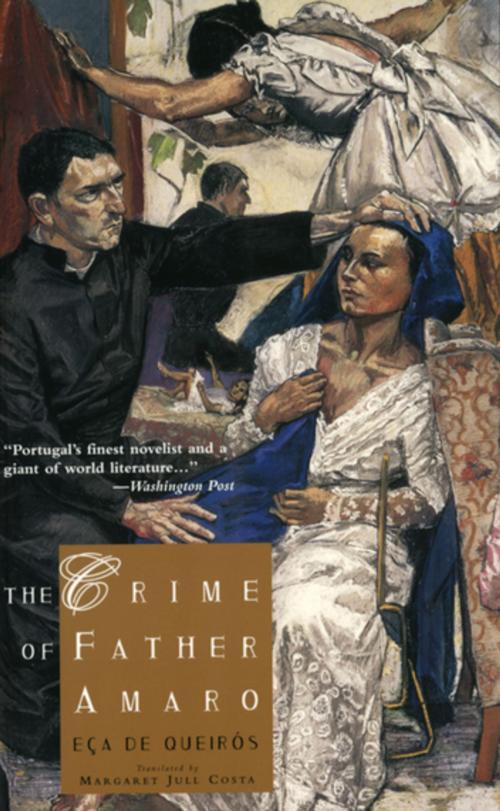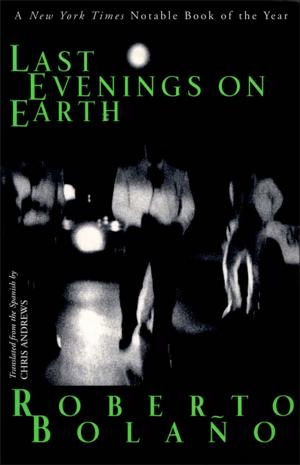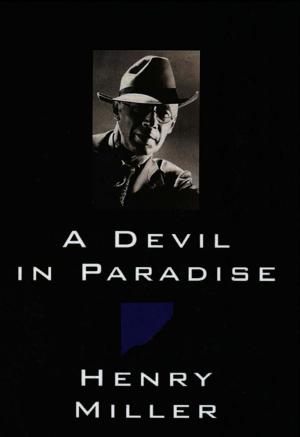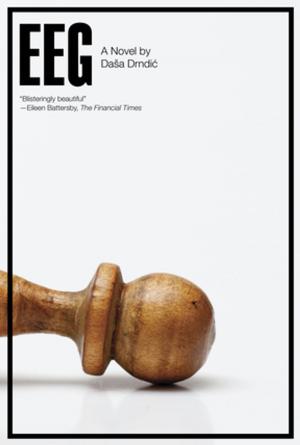| Author: | José Maria de Eça de Queirós | ISBN: | 9780811203807 |
| Publisher: | New Directions | Publication: | May 17, 2003 |
| Imprint: | New Directions | Language: | English |
| Author: | José Maria de Eça de Queirós |
| ISBN: | 9780811203807 |
| Publisher: | New Directions |
| Publication: | May 17, 2003 |
| Imprint: | New Directions |
| Language: | English |
An unflinching portrait of a priest who seduces his landlady's daughter, made into an acclaimed and controversial motion picture.
Eça de Queirós's novel The Crime of Father Amaro is a lurid satire of clerical corruption in a town in Portugal (Leira) during the period before and after the 1871 Paris Commune. At the start, a priest physically explodes after a fish supper while guests at a birthday celebration are "wildly dancing a polka." Young Father Amaro (whose name means "bitter" in Portuguese) arrives in Leira and soon lusts after—and is lusted after by—budding Amelia, dewy-lipped, devout daughter of Sao Joaneira who has taken in Father Amaro as a lodger. What ensues is a secret love affair amidst a host of compelling minor characters: Canon Dias, glutton and Sao Joaneira's lover; Dona Maria da Assuncao, a wealthy widow with a roomful of religious images, agog at any hint of sex; Joao Eduardo, repressed atheist, free-thinker and suitor to Amelia; Father Brito, "the strongest and most stupid priest in the diocese;" the administrator of the municipal council who spies at a neighbor's wife through binoculars for hours every day. Eça's incisive critique flies like a shattering mirror, jabbing everything from the hypocrisy of a rich and powerful Church, to the provincialism of men and women in Portuguese society of the time, to the ineptness of politics or science as antidotes to the town's ills. What lurks within Eça's narrative is a religion of tolerance, wisdom, and equality nearly forgotten. Margaret Jull Costa has rendered an exquisite translation and provides an informative introduction to a story that truly spans all ages.
An unflinching portrait of a priest who seduces his landlady's daughter, made into an acclaimed and controversial motion picture.
Eça de Queirós's novel The Crime of Father Amaro is a lurid satire of clerical corruption in a town in Portugal (Leira) during the period before and after the 1871 Paris Commune. At the start, a priest physically explodes after a fish supper while guests at a birthday celebration are "wildly dancing a polka." Young Father Amaro (whose name means "bitter" in Portuguese) arrives in Leira and soon lusts after—and is lusted after by—budding Amelia, dewy-lipped, devout daughter of Sao Joaneira who has taken in Father Amaro as a lodger. What ensues is a secret love affair amidst a host of compelling minor characters: Canon Dias, glutton and Sao Joaneira's lover; Dona Maria da Assuncao, a wealthy widow with a roomful of religious images, agog at any hint of sex; Joao Eduardo, repressed atheist, free-thinker and suitor to Amelia; Father Brito, "the strongest and most stupid priest in the diocese;" the administrator of the municipal council who spies at a neighbor's wife through binoculars for hours every day. Eça's incisive critique flies like a shattering mirror, jabbing everything from the hypocrisy of a rich and powerful Church, to the provincialism of men and women in Portuguese society of the time, to the ineptness of politics or science as antidotes to the town's ills. What lurks within Eça's narrative is a religion of tolerance, wisdom, and equality nearly forgotten. Margaret Jull Costa has rendered an exquisite translation and provides an informative introduction to a story that truly spans all ages.















